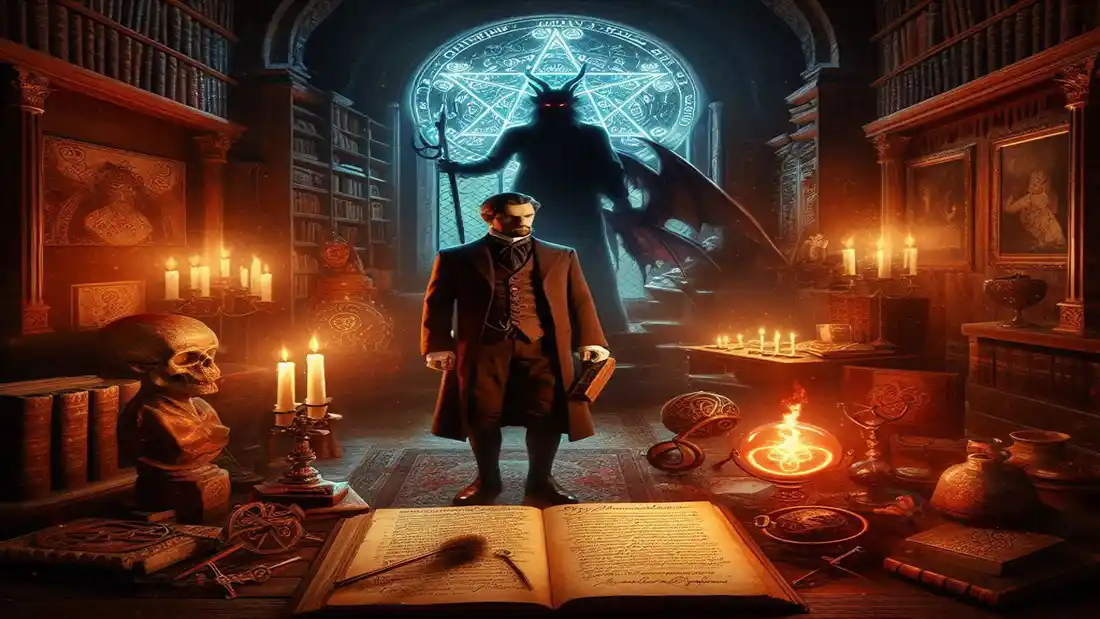Welcome to BD JOBZ PREPARATION, your go-to source for insightful literary discussions. The Renaissance was a period of great intellectual, artistic, and cultural awakening in Europe. It encouraged new ways of thinking, emphasizing human potential, scientific discovery, and a quest for knowledge. One of the literary masterpieces influenced by this movement is Doctor Faustus by Christopher Marlowe. The play reflects Renaissance ideals, showcasing a deep thirst for knowledge and the consequences of human ambition. The influences of Renaissance on Doctor Faustus are evident in its themes, characters, and portrayal of human aspirations.
Read More: Concept of Hell in Doctor Faustus
Influences of Renaissance on Doctor Faustus

The Renaissance Spirit in Doctor Faustus
The Renaissance celebrated humanism, a belief that placed human potential and achievements at the center of intellectual pursuits. Doctor Faustus embodies this spirit through the character of Faustus, a scholar who seeks unlimited knowledge and power. Unlike medieval plays that emphasized divine intervention, Marlowe’s play focuses on human capability and free will. Faustus rejects traditional religious studies in favor of magic, believing that human knowledge should surpass divine authority. This reflects the influences of Renaissance on Doctor Faustus, where Renaissance ideals challenge medieval thought.
Quest for Knowledge and Power
One of the key aspects of the Renaissance was the pursuit of knowledge in science, literature, and philosophy. Faustus represents this quest as he turns to necromancy to achieve his ambitions. His desire to gain infinite wisdom and control over nature aligns with the Renaissance belief in human potential. However, his downfall also serves as a warning about the dangers of unchecked ambition. The influences of Renaissance on Doctor Faustus are apparent in his rejection of traditional knowledge and his eagerness to explore the unknown.
The Role of Individualism
The Renaissance emphasized individualism, encouraging people to challenge established norms and think independently. Faustus is an example of a Renaissance individualist who refuses to accept the limitations imposed by religion and tradition. He believes in his own abilities and seeks to become more than just a mortal. However, his overconfidence leads to his tragic downfall. This highlights the influences of Renaissance on Doctor Faustus, where individual ambition clashes with divine authority.
Renaissance Skepticism and Religion
The Renaissance period questioned many traditional religious beliefs, leading to new ways of thinking about faith and morality. Faustus, despite being well-versed in theology, chooses to reject God and sell his soul to Lucifer. His skepticism towards religious doctrine reflects the changing attitudes of the Renaissance. People began to explore secular ideas and question the absolute power of the Church. The influences of Renaissance on Doctor Faustus can be seen in the way the play portrays a man who prioritizes earthly pleasures over spiritual salvation.
Scientific and Magical Exploration
The Renaissance saw significant advancements in science and exploration, with figures like Galileo and Copernicus challenging old beliefs. Faustus, too, desires to go beyond conventional studies and engage in magical experiments. His interest in magic symbolizes the Renaissance curiosity for new knowledge. However, unlike real Renaissance scholars who contributed to science, Faustus uses his power for personal gain. His tragic end serves as a reminder that knowledge without wisdom can lead to destruction. The influences of Renaissance on Doctor Faustus are evident in this portrayal of scientific and magical pursuits.
Read More: A Modern Tragedy Doctor Faustus
The play Doctor Faustus is a perfect example of a Renaissance tragedy, reflecting the era’s thirst for knowledge, individual ambition, and skepticism towards tradition. The story captures the essence of the Renaissance spirit while also warning about its potential dangers. As we continue to explore the boundaries of human knowledge and ambition, the influences of Renaissance on Doctor Faustus remain relevant today. Stay tuned to BD JOBZ PREPARATION for more insightful literary analyses and discussions!



